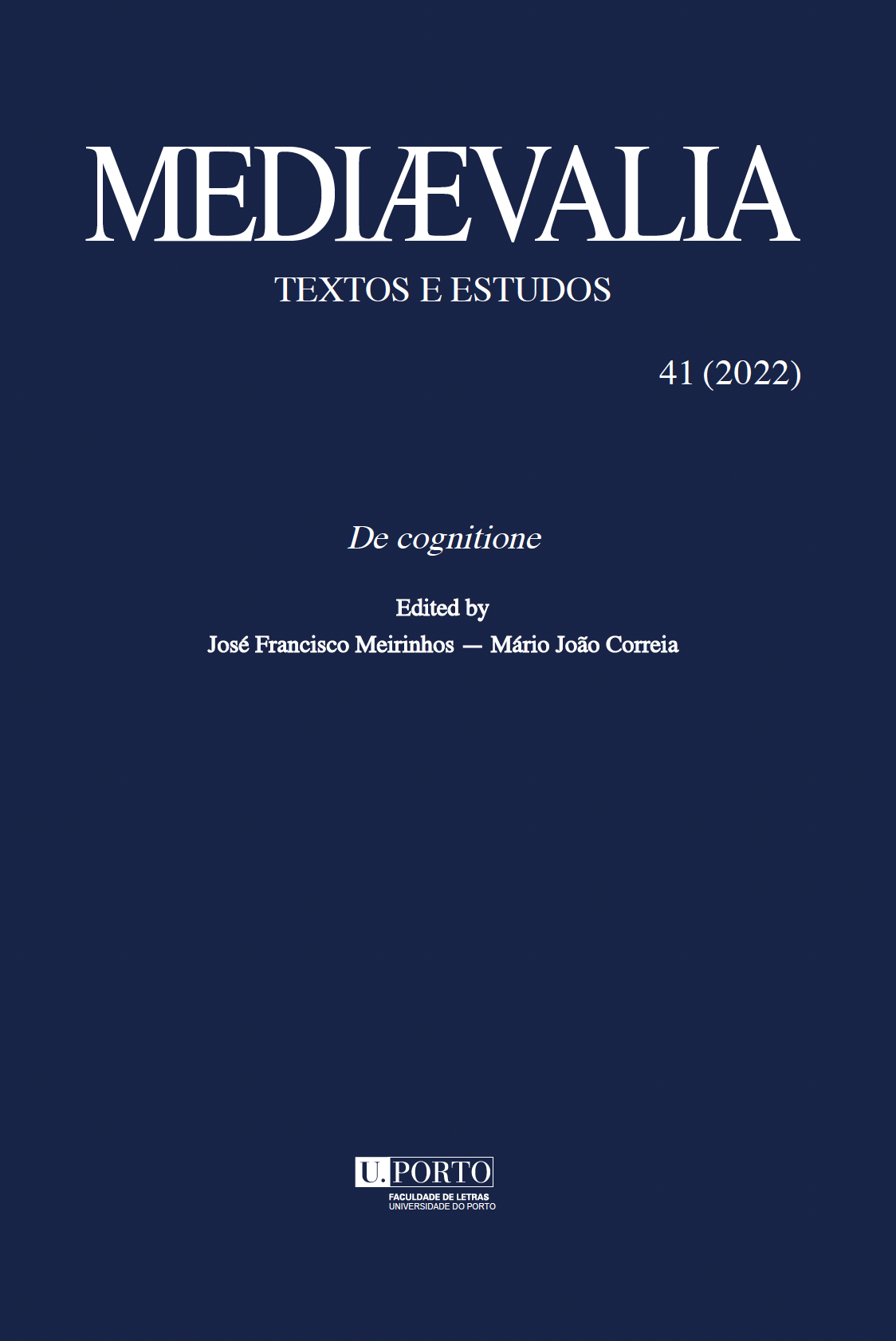Paradigmas medievales del conocimiento: diversidad de perspectivas
Resumo
Las teorías medievales del conocimiento se diferencian en función de presupuestos y parámetros que los diversos filósofos privilegian en sus enfoques específicos del sujeto cognitivo y del objeto de conocimiento. Sus análisis de los procesos cognitivos de sujetos de naturalezas bien distintas (el ser humano, el ángel, Dios), y con relación a una gran variedad de objetos de conocimiento (entidades materiales, inmateriales, fictivas, conceptuales, etc.), suscitan una gran diversidad de planteamientos y de perspectivas epistemológicas. La presente contribución aborda tres paradigmas fundamentales que habrán nutrido el desarrollo de las diversas teorías del conocimiento, frecuentemente antagonistas: el empirismo, el innatismo y el intencionalismo.
Palabras-clave: Teorías medievales delconocimiento (siglos XIII y XIV); empirismo; innatismo; intencionalismo.
DOI: https://doi.org/10.21747/21836884/med41a1
Downloads
Publicado
Edição
Secção
Licença
Direitos de Autor (c) 2023 Tiziana Suárez-Nani

Este trabalho encontra-se publicado com a Licença Internacional Creative Commons Atribuição-NãoComercial-SemDerivações 4.0.






